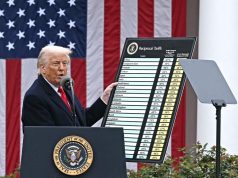In the tapestry of the modern workplace, negotiation skills are the threads that weave together successful outcomes and harmonious relationships. The ability to navigate discussions, advocate for your position, and arrive at a mutually beneficial resolution is vital. However, the global and diverse nature of today’s workforce has introduced complex layers to the art of compromise that demand a more sophisticated approach to negotiation than ever before.
Reflecting on my personal experience, I recall a time when I found myself at a negotiation impasse with a colleague from a different cultural background. Our perspectives on the project’s direction were diametrically opposed, and our discussion reached a deadlock. It was a challenging moment that tested my negotiation skills and taught me invaluable lessons about the importance of adaptability, empathy, and strategic communication.
The first strategy I employed was to actively listen and seek to understand my colleague’s position. By showing genuine interest and asking clarifying questions, I was able to comprehend not just her arguments but the cultural values that informed them. This understanding created a foundation of respect that allowed us to discuss our differences more openly and without defensiveness. Adaptability came into play as I adjusted my negotiation approach to accommodate our varying communication styles, ensuring that we both felt heard and valued.
Empathy was pivotal in bridging the gap between us. By putting myself in her shoes, I gained insights into potential concerns she might not have voiced directly. This knowledge enabled me to craft proposals that addressed both our needs, thus dismantling the barriers to compromise. Strategic communication, including clear, concise articulation of ideas and the use of positive, non-confrontational language, further facilitated a successful negotiation outcome.
The experience underscored for me the essential role that negotiation training plays in preparing employees to navigate a diverse workforce. Companies can significantly benefit from providing programs that emphasize cultural competency, emotional intelligence, and the nuances of non-verbal communication. Such training not only equips employees with the skills needed to negotiate effectively across differences but also fosters an inclusive atmosphere where diverse ideas and perspectives are embraced.
Current trends show that workplaces that invest in comprehensive negotiation skills training tend to report higher levels of employee satisfaction and greater overall productivity. As globalization continues to bring a myriad of cultures and ideas into the professional sphere, mastering the art of compromise becomes integral to building synergistic teams capable of reaching new heights of innovation and success.
In conclusion, effective negotiation in today’s workforce is an intricate dance that requires an astute awareness of the diverse landscape in which we operate. It is through adaptability, empathy, and strategic communication that we can overcome cultural and personal barriers to find common ground. By embracing these principles and investing in targeted negotiation skills training, organizations can create more inclusive and productive work environments that harness the full potential of their workforce.

















![From TAOLabs: A New, Simplified Way to Learn in the Age of Chaos [30m60h90d] From TAOLabs: A New, Simplified Way to Learn in the Age of Chaos](https://theworktimes.com/wp-content/uploads/2025/05/ChatGPT-Image-May-13-2025-01_11_22-AM-238x178.png)










